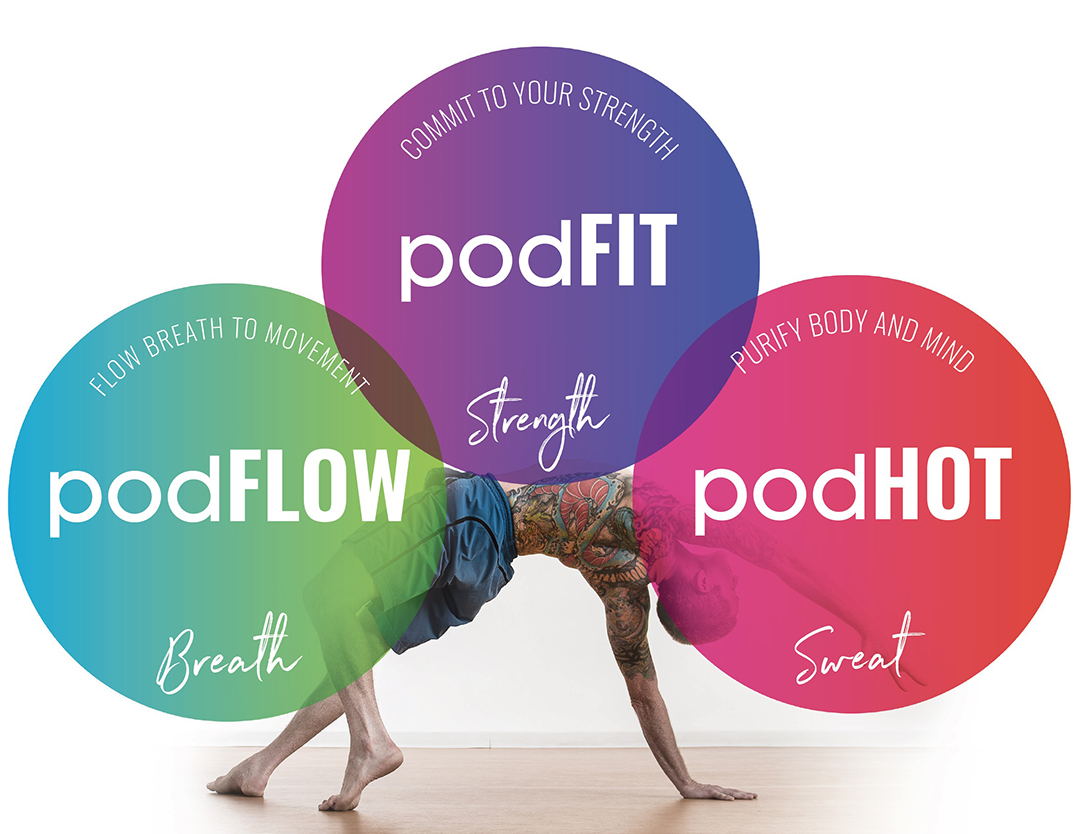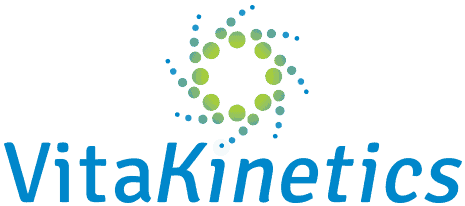Radically Resilient Health Podcast
Mike Fraley – Shoulder Injury Recovery
Mike Fraley, co-owner of YogaPod in Reno, joins Dr. Carolyn Dolan to share how he was able to replace pain meds using Vitakinetics after his shoulder surgery.
Connie Wray: (00:00)
Welcome back to radically resilient health with Dr. Carolyn Dolan. And we told you that this season we would be talking with individuals about their experience, not just with Vitakinetics, but with the principles that Dr. Dolan has talked to us about eat well, supplement well sleep well. And here to talk about that today is Mike Fraley. He is the co-owner of the yoga pod here in Reno, Nevada. A good morning to both of you. We’re so excited to hear your story, Mike, and hear your experience, uh, with Vitakinetics and Dr. Carolyn Dolan. Welcome to the podcast.
Mike Fraley: (00:36)
Thank you. Thank you. I appreciate it.
Dr. Carolyn Dolan: (00:39)
I was just telling Connie earlier about yoga pod being a two for one, because it really helps you get that connection to your body and your breath, which is also important connection to community. But then at the same time, you’re getting that move well, that movement, the mobility piece and the strengthening piece. Now you, um, as a co-owner you and your wife, Angie own yoga pod and do a phenomenal job, but you yourself have had your own injury that you have now taken sort of that full cycle of injury, surgery, recovery, and, and really, um, um, back to your, your old self, so to speak. And we want to, we want to hear a bit more about that story.
Mike Fraley: (01:27)
Well, you know, my first, uh, shoulder, so the main thing when I started using Vitakinetics, um, was after my second shoulder surgery, the first time my shoulder ever came out was 20 years ago. So 20 years ago on lifting weights, I go to put the weight back and I miss, and my, it was all the weight went on my left shoulder. It popped out somehow when I came forward, it popped back in, and that was the first time I’d ever came out. 10 times later, after it came out from different accidents, basketball, everything you can name a diet. Somehow it came out. I had my first surgery. It was the worst thing. The recovery from that first surgery, it hurt. I couldn’t sleep. It took me probably two weeks just to get out of bed. I mean, it was, it hurt. And all I was doing was down in the, the pain pills and it, the recovery time just seemed forever.
Mike Fraley: (02:29)
Nine months after that surgery playing flag football shoulder comes out again, 10 more times. Uh, the last time was actually Hawaii, 2019 a wave slammed me into the ground. And immediately I knew something had happened. I get out and I’m like, Angie, Andy, who’s my wife. I’m like, and she, my shoulder came out, you know, I’m trying not to draw attention to myself. I’m like, can you put it back in? So she puts it back in, uh, which is the third time my poor wife has had to put my shoulder back in. It was the most pain and I knew it was something different besides the labor. So I go see, I get back and see Dr. Dolan. He confirms that, yeah, I’ve broken a bone in there as well as the torn labrum. And so he suggests the, a different approach where it’s called the ladder J I believe surgery, where they actually took a cut a couple inches of my clavicle to pull my shoulder forward.
Mike Fraley: (03:28)
They took another bone attached it to the back and took my bicep to wrap it around as a sling to keep the shoulder replaced. So it doesn’t come out in right before surgery. Um, I’m talking with him and he’s like, Hey, you know, for your recovery, I was thinking we could do maybe this vitakinetics. And so I’m like, oh, okay. I will try anything, um, that we can do. I did the pain pills for maybe three, three days. And again, I just didn’t like how I felt on the pain pills. And I was like, I still have pain, you know, and I’m not feeling good. And you know, I’m not the, it backs you up the, uh, the medicine. And so, you know, I’m just not feeling good. Other things are happening. So I started taking my Vitakinetics within about four days. I’m feeling better feeling good. The part that the poop part was wonderful. Everything, you know, I’m, I’m feeling good that way. And then I’m like, okay, I think I got this. And that’s where, you know, that’s where that surgery did. You know? And that’s when I’m at,
Connie Wray: (04:41)
I’m kind of in the same boat with you. Mike is I had a similar experience. And I think in that moment when, just like you not wanting to be on a pharmaceutical, that is a pain medication to know that there’s another option. I think that was what was so satisfying for me with my hip replacement. And my hip surgery was, I was so nervous about the side effects. Like you were mentioning that it was so much of a relief to me that I had another option. And then to know that that option, like you said, I was off opioids within three days after a full hip replacement fully using Vitakinetics and feeling good.
Mike Fraley: (05:22)
Exactly. Yes. That’s, that was the big difference I felt good.
Dr. Carolyn Dolan: (05:27)
And there’s, there’s a lot of components to your story too, that Vitakinetics played a role in supporting that. And we’ve heard, we’ve heard a fair number of stories like yours, where people really liked having this option to sort of get them away from those things and those secondary effects. And those, those medications have a, have a role to play in recovery. But you also being that you own yoga pod, you really live and breathe our fundamental principles while Vitakinetics played a supportive role. I mean, there’s really more to the story. I’m sure. I mean, I’m sure Angie wasn’t feeding you donuts all day long.
Mike Fraley: (06:08)
No, no, no. You know, that’s the wonderful thing about if it was up to me, it would be donuts every day. But luckily I have this amazing wife who she, you know, she’s not a vegetarian, but she pretty much eats all vegetarian stuff with some chicken slashed in there. She always, she makes me my healthy salads, uh, all my protein shakes. Um, so she is the one who truly keeps me healthy food wise. And, and that does it. It truly does make you feel better if I know when I’m eating my donuts and stuff like that, you know, the sugar, you know, it’s just not good for me and I can feel it. I can feel it when that happens, but in addition to that, the yoga, so I wasn’t able to practice for about 12 weeks. So I had 12 weeks where I couldn’t do a chapter on God.
Mike Fraley: (06:58)
However, what I did do is I did the yin classes. So yin is a stretching meditative type class. And so that got me back with everybody in the studio, connecting with other people. Um, it got me into yoga room. I remember my first class back. I actually had tears at the end because it just felt so good to be back instead of sitting on my, you know, my chair and my in my, you know, living room. So I love that part of it. Um, and just being back into the yoga room was, uh, healthy for that for my mental health as well.
Dr. Carolyn Dolan: (07:38)
Um, one of my favorite tools with folks who are going through those really significant acute pain scenarios, like a shoulder surgery or any surgery or major injury is getting back to the breath work can really, um, do amazing things so that central nervous system and that pain response, uh, alone. So that is one of the things even with like your union practice specifically, that really brings you back. And that’s what I was talking about with yoga, really being, um, it’s one thing, but it really gives you the connection to your breath. Like you said, the community piece, um, but also the calming of the nervous system and whatever movement that is at the time to help you, you know, where you meet you, where you are. Um, you, you really get that with, with yoga. And I’m really, when do you think you started, um, getting back into the end practice after your surgery?
Mike Fraley: (08:34)
It was six weeks after. So it was, you know, I was, I had, you know, I was still in my little sling, but in that class and at the end class, you know, you can adapt to any pose and you’re on the mat. You’re not using shoulder strength for any moves, definitely of a stretching, but more than that, it truly is it’s that breathwork work like you were talking about along with the calming voice of this teacher, allowing me just to relax. Um, and that was just so nice because it is hard to get comfortable when you’re having to sleep on your back and on the site sleeper. So, you know, I’m forced to sleep on my back, you know, for, you know, you know, three months. It was nice to, for that just to be able to relax. And, and I know I probably, you know, Hillary maybe kicked me a few times as I started snoring in class because I was so relaxed.
Dr. Carolyn Dolan: (09:35)
Um, and that, you know, one, when we look at this, the fundamental principles I always talk about in these certain stages of injury, recovery, or stages of life, each part can play a more important role and depending on where you are, and, you know, one of the reasons why we continued moving forward with developing Vitakinetics was I was really starting to discover, well, you know, there really are times where these other components, while they’re super powerful, getting good sleep is so important for the healing process and the mental health and the physical health, um, and all of that. But sometimes you really just, you know, sleep is just off for whatever reason is, you know, you’ve just had your newborn baby and you’re not going to die. I mean, this is the other thing like you, nobody’s going to die like immediately, like you want to work towards it, but we do have this ability to sort of adapt around and you found a way to find your rest your body was like, listen, I’m comfortable here. This is what my body needs. And you really were intuitive enough to, to listen in on that.
Mike Fraley: (10:49)
And even at night, then I, we do recordings, uh, on our app. And so we have all these recordings. And so at night, you know, when I went to hear that voice, that call me and voice, I would add just put on that video and push play, and then I could hear the voice and it would just Lil me to sleep. It was wonderful.
Connie Wray: (11:09)
I’m just curious with your practice. I mean, here you are a yoga instructor, you own a yoga studio. Um, did you feel a pressure to heal faster? Was that something that you were also looking for or did you recognize? I know that this is a major injury I want to heal, right? You’d been through this for a few times. Cause I know like you, I had two surgeries and then the second being the full hip replacement, you know, there is a lot of pressure that you put on yourself when you’re a person that I think the three of us are fit individuals. Fitness is a part of our lifestyle and you know, it would have been easy to run for a quick fix a pain pill like you were saying, but to try to stick to those principles that I think the three of us have really lived by very much like what Carolyn was saying, eat well, live well, supplement, well, uh, move. Well, it is hard to find that balance.
Mike Fraley: (12:08)
Yeah. I, I know I, I just wanted to get back so I could do yoga and then mountain bike. I’m a huge mountain biker as well. And so my love is mountain biking and, but you’ve got it, you know, that shoulder, when you’re holding onto that bike and going down these drop-offs, you got to have your shoulder in place. And I remember probably it was six months after the surgery. I did, I was doing this ride and I remember I almost flipped the bike, but it was my left shoulder, which I had the surgery on. It was that left arm that kept me from flipping. And I was like, and it held. And I was like, okay, all right. I think I’m back. You know? And then I was a little nervous, you know, I was like, oh, do I go see Dr. Dolan again?
Mike Fraley: (12:54)
You know, my shoulder, you know, but it held. And I was like, I’m feeling confidence. And so it was just good to get back to the things I enjoy and I love, um, but I do, you know, I did feel a little pressure to get back, you know, to heal fast is how I call it. If I go back to, um, 2000, it was before my shoulder, my second shoulder surgery, I actually had torn my meniscus in my left leg. Um, I go and I went and had surgery to repair that meniscus. Of course I, I say, I’m a quick healer. After about three weeks, I was released from my PT. I’m like, can I go back and doing all the things I love? And they’re like, sure, my PT is like, you go back, you, you know, you can do the things you want to do.
Mike Fraley: (13:43)
I’m out there and I’m running and playing ultimate Frisbee. And, um, the Frisbees out there I’m going to run and catch it. And then all of a sudden, my knee gave out and I tumbled. I had torn it again. And so it was such a downer and I felt so bad and I had to wait six months before I could have that surgery again, that when I did have this second shoulder surgery, I did, you know, I did take my time. I was like, you know what, I’m going to, I pushed my knee and look what happened. Um, I’ve already had one such shoulder surgery. So the second one. So I do need to take time and need to do the right things. Of course it helped that I was almost 50 after my second surgery. And so that, that helped me, uh, you, you know, focus on healing
Dr. Carolyn Dolan: (14:33)
And I was going to say, it’s, um, patients. And while we talk about the supplement being supportive of the healing process and potentially certain components can, you know, maybe shave off a little bit of time here with the wound healing and healing faster. Well, it’s all relative, right? Like your healing process does take this eight to 12 weeks and you can improve it. You can optimize it, but it’s really having a faith in your body’s process and the patients so that I always encourage people while, while we may shave off some time the supplement sort of supports and doing all these things shaves off a little bit of time. It doesn’t suddenly mean that your whole inflammatory process only takes seven days when it will. That normal healing process usually takes eight to 12 weeks. We might shave off a little bit of time here, but it still takes that time to get to that full healing process. And so you really practice a lot of patience and faith in the process, right? So I’m going to just keep doing these things that I know are good for me eating my nutritious food, trying to avoid the inflammatory foods. You know, I’m not sleeping great, but I’m going to do this restorative stuff to give my body rest and whatever movement I can. So that that’s called wisdom. Right?
Connie Wray: (15:57)
Well, and I I’m very much like with you with the Vitakinetics, I too was unable to sleep on my side. I’m a side sleeper, you know, I have this full hip replacement. And that was the one component of these principles that why was struggling with white right. Sleep, sleep. Well, it was difficult for me to do that. And I felt like, at least I had this tool, these vitamins and the supplement that I was putting in my body was a healthy option. Still feeding myself. Well, you know, like you were saying, just that continued nutrition was so important, but I knew that I had Vitakinetics to kind of fall back on because there was that one component at this time that I was struggling with, which was the sleep. And when you give your body as much of those components as possible and even movement, right. I needed to be walking. They were like, you need to walk every day, like always constantly. And it was really, it gave me the strength to do that, to, to get back to the movement that I wanted to get back to. But, you know, finding a tool that can get you through that, what, like you said, eight, 10 or 12 week process is so key.
Mike Fraley: (17:08)
So key. Yeah, it was wonderful. And I, today I still think Dr. Dolan for suggested it. So I was like, whoop.
Dr. Carolyn Dolan: (17:16)
Well, you know, he has his own personal experience. We hope to get him on the podcast to share his personal story. Someday also both, both as a clinician, but also switching roles from being a surgeon to actually being the patient. But we thank you so much for sharing your story. And I just, you just embody when we were thinking of people we wanted to interview for the season, you were top in my mind of someone who just embodies what radically resilient health is and being able to get through challenging times using those fundamental principles.
Mike Fraley: (17:54)
Thank you. Thank you. I appreciate you. And I appreciate Vitakinetics so much.
Dr. Carolyn Dolan: (17:59)
Thank you very much.
Connie Wray: (18:00)
Well, and this is what I love so much about radically resilient health and, and Carolyn, you talk a lot about this in this podcast is even though we say radically right, radically, it really isn’t that radical in the sense that you’re giving your body the nutrition that it needs. You’re giving it the movement that it needs. You know, Mike being a yoga instructor and know the importance of breath, you know, the importance of connection, you know, the importance of movement and to have all of those components. When you start to do that, you’re going to notice radical changes in your health. Yet these simple, basic principles are not that radical when you really sit down and think about it, but yet the changes are incredible in what your body experiences.
Mike Fraley: (18:46)
Exactly. Yeah. If everybody can just do those simple things that you talk about, everybody’s going to be healthy and happy, you know, so true.
Connie Wray: (18:55)
Yes.
Dr. Carolyn Dolan: (18:56)
Certainly happier and healthier. Yeah.
Connie Wray: (18:59)
Mike, you are the co-founder of yoga pod in Reno. If people want to find more information about yoga pod, where do they go to
Mike Fraley: (19:09)
Go to yoga pod, reno.com. Uh, we always give a free week for everybody to try us out that way they can try different times different classes, different teachers, just to see, you know, what works for them and their schedule. Cause we know everybody’s schedules difference. Um, and then we always offer everybody a joint for 40, $40 your first month, and then it would go to a regular pricing. So come give us a try and we’d love to see you.
Connie Wray: (19:37)
Thank you both for joining us. And today we’ve been chatting with Mike Fraley. He is the co-owner of yoga pod in Reno, along with Dr. Carolyn Dolan, founder of Vitakinetics. And you can learn more about Vitakinetics by visiting their website at Vitakinetics.com.

Mena
Radically Resilient Health Podcast Small Steps Conquer Mountains with Special Guest Mena Spodobalski Evoke Fitness owner, Mena Spodobalski, shares her joys and struggles toward radically resilient health. Health doesn't always have to seem radical. The best workout...
Recovery From Substance Dependency With Lori Windfelt
Radically Resilient Health Podcast Recovery From Substance Dependency With Lori Windfelt Radically Resilient Health is not about the absence of disease, injury, or stress, it is the ability to recover and make positive choices to support your overall health. Lori...
Emotional and Mental Resiliency – With Special Guest Dusty Braun
Radically Resilient Health Podcast Emotional and Mental Resiliency With Dr. Dusty Braun Our mind and body are intimately interconnected in ways that we can't really comprehend outside of science. We oftentimes think ourselves or our minds as separate from our body,...
Available at our partner locations

690 West 2nd St. Suite 101
Reno, NV 89503

13981 S Virginia St #402b,
Reno, NV 89511








